By Yemi Sodeeq
On December 11, 2022, the people of Patigi local government area of Kwara State were engulfed with excitement over the commissioning of the Patigi water supply project.
The project, which was handed over to the Kwara State government after it was commissioned, can deliver 5 million litres per day.
While commissioning the project, the former Minister of Water Resources, Engr. Suleiman Adamu, said the project would supply water to over 200,000 residents in Patigi town and neighboring communities.
According to him, the quality of the treated water from the scheme has been subjected to laboratory tests and established to be within national and international standards for drinking water.
The Minister said that the Contractor has trained the operational staff of the Kwara State Water Board on various aspects of running the scheme for the benefit of the teeming Patigi population.
He added that the water scheme has over 35 kilometres of distribution network pipelines with about 32 fetching points distributed within the network, among other components.
Adamu, who expressed satisfaction over the execution and completion of the Project, which was delivered in June 2022, urged the Kwara State government to ensure proper management and maintenance of the Water Supply Project through its Water Board to provide long-term service to the people.
According to the Ministry, some of the modern facilities attached to the project include the Raw Water Intake Building comprising 3 Nos. Low lift Pumps, control panels, and a Mobile Crane for maintenance; and a Conventional treatment plant with a capacity of 5 million liters/day comprising an Aeration tank.
Others include a Sesedimentation tank and Filtration Gallery; a Chemical building consisting of chemical dosing and mixing machines and a chlorination injection system; a 5 million liters capacity ground clear water concrete storage tank and a 100,000 liters overhead tank on 6 6-meter height stanchion at the head works.
The Minister explained that the project was executed in two phases; the 1st phase of the project was awarded to Messrs Gilmor Engineering Ltd, and Messrs Yemaq Group Ltd as the Supervising Consultant in December 2012 with about 45 percent completion rate in 2014.
He added that in order to move the project forward, the second phase was awarded to Messrs CGC Nigeria Ltd in 2019 with Messrs Qiblat Associates as the Supervising Consultant with a completion period of 24 months.
However, about 18 months after the ministry commissioned the water project, it is yet to serve the community. Residents continue to lament the scarcity of water as the project fails to function.
Residents still get water from stream: Youth Union
Muhammed Usman is the Secretary of the Patigi Youth Emirate. While reacting to the issue of water scarcity in the community, he stated that the people of Patigi are suffering from the lack of potable water despite their closeness to the River Niger.
“We are facing serious challenges due to the lack of water in this community. It has affected a lot of things,” he said.
Usman, who noted that it’s more frustrating to see some government projects not delivering water as promised, said that some of the residents rely on what people with personal boreholes give to them, which are most often not enough.
“I normally buy six to seven liters of fuel every day to supply water to people living within my area here and I don’t take any money from them – I take it as part of my effort to the community – about 20 households get water from my borehole to survive and meet their needs,” he said.
He added that some of the residents still fetch water from the stream despite the accompanied threat of waterborne diseases.
“There are several people who are still fetching and drinking the water from the stream. They used to go as early as 4:30 am so that they would be able to fetch sometimes – and they would still have to put alum to make it drinkable,” he said.
Another resident, Umar Bologi claimed that he normally fetched from the stream to serve his family. He lamented how both the federal and state government water projects have failed to deliver for the community.
“I used to fetch from the stream. This is the water we have been drinking and using all this while. None of the waterworks in this community are working,” Bologi said.
‘We buy water, project not fully completed’
Muhammed Usman argued that the Patigi water supply project is not yet fully completed as no one has ever benefited from it.
“They have not channeled the water into the town properly. They only opened the water to ensure that it could go through. Nobody has ever fetched a cup of water from it,” he said.
While also claiming that the contractor who constructed the project is yet to complete it, he said there is no end in sight as to when the project will be delivered to the community as no work is currently ongoing on the project.
“The project is still under the control of the contractor and there is no work going on there as we speak,” he said.
As observed by this reporter, Usman said that some of the water delivery points created for the project are yet to be completed.
Usman’s claim was corroborated by Sukari Alhaji who said the project was only commissioned but was not test-run.
“They only commissioned it but they didn’t test-run it. Some of the pipes they laid for the delivery of the water into the town are even faulty and if the water supply should work today, the pipes would be leaking,” he said.
Alhaji recalled that due to the issue of lack of electricity which was raised by community leaders during the commissioning, the Minister also promised that a solar system would be implemented to ensure uninterrupted power supply to the facility in 2023, this, according to him, has never materialized.
Meanwhile, both Usman and Sukari noted that the community leaders and stakeholders had made several efforts in a bid to make the water project supply work but all to no avail.
“The Etsu of Patigi and other community leaders visited the Federal Ministry of Water Resources last year on the issue but we are still yet to see positive changes,” Sukari said.
During a visit to the site of the Patigi Water Supply Project by this reporter, it was observed that the site was desolated and no activities were going on there. The place was already being taken over by the bush.
‘117,000 children die in Nigeria annually due to water-related illnesses’
According to the Nigerian Institute of Water Engineers (NIWE), about 179 million Nigerians do not have access to safely managed drinking water services.
The body, while adding that about 67% of the Nigerian population does not have access to basic water supply, stated that about two-thirds of the country’s population use drinking water supplies contaminated by thermotolerant coliform at the point of collection.
It also lamented that about 79% of waterworks in Nigeria were either non-functional partially functional or completely moribund.
In 2022, UNICEF says 70% of water at the point of consumption is contaminated and children are the most affected in Nigeria.
As a result, the body says 117,000 children die in Nigeria each year due to water-related illnesses – the highest number of any nation.
In 2023, A UNICEF analysis puts 78 million children in Nigeria at the highest risk from a convergence of three water-related threats – inadequate water, sanitation, and hygiene (WASH); related diseases; and climate hazards.
Lack of electricity affecting operation of the facility: Kwara govt
When contacted to get his reaction, the Kwara State Commissioner for Water Resources, Yunusa Lade, claimed that the lack of electricity has hindered the operation of the multibillion naira water supply project.
“Lack of electricity is the reason why the project is not working,” responded the commissioner.
He, however, refused to comment when asked whether the Kwara State Ministry had communicated the present status of the project to the Federal Ministry of Water Resources and Sanitation.
Meanwhile, efforts to reach the Federal Ministry of Water Resources and Sanitation over the non-functioning status of the project, proved unsuccessful.
This report is produced with support from Wole Soyinka Centre for Investigative Journalism (WSCIJ), under the CMEDIA Project.

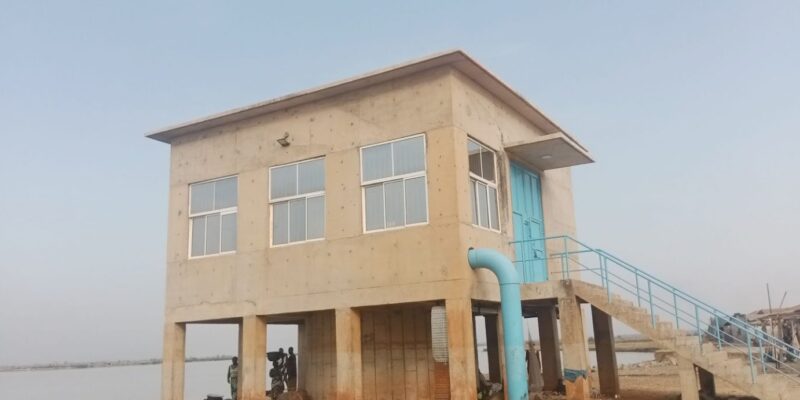

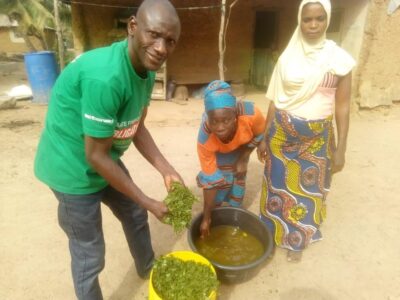

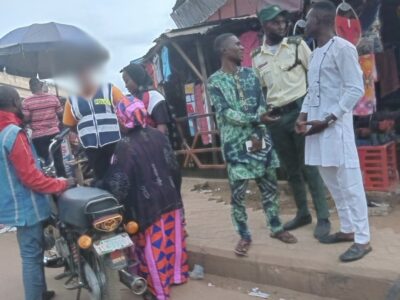
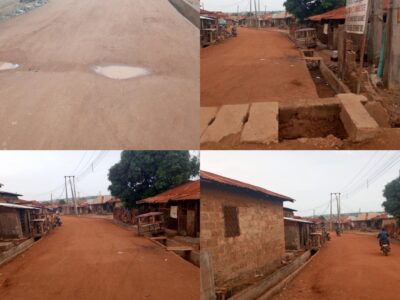

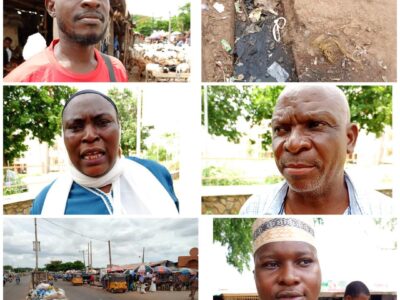

Comments